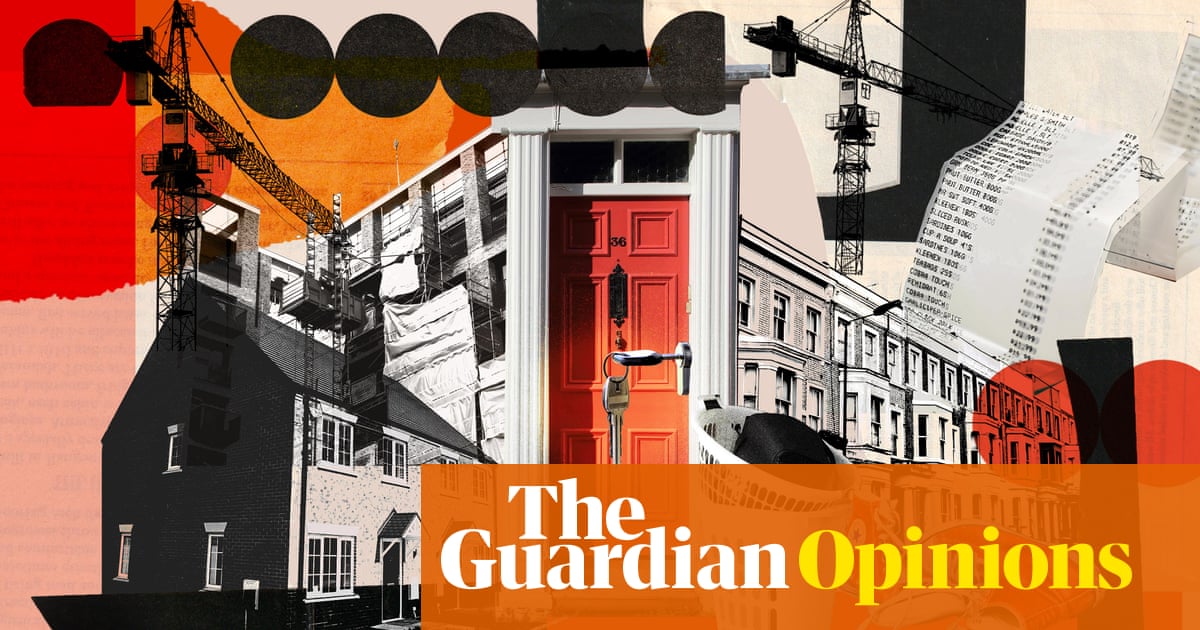
Sometimes a crisis best reveals itself in the small things. A pile of laundry, that by now you didn’t imagine you would still be doing; the sound of the front door opening in the early hours and adult footsteps creaking up the stairs.
Living with frustrated twentysomething children who should probably have flown the nest long ago, but can’t afford to move out, is increasingly the norm for middle-aged parents. The Office for National Statistics confirmed this week that for the first time the majority of 20- to 24-year-olds in England and Wales are still living under the parental roof, with the number of so-called adult children up 14% in a decade.
Grown adulthood, in the sense of being able to stand on your own two feet, or bringing a date home without having to make awkward introductions to your dad, is taking longer and longer to achieve.
Much as some may secretly enjoy having the kids around a bit longer, there is nothing like coming home in late middle age to a ransacked fridge and a pile of massive trainers in the hall to drive home the fact that home ownership among the under-35s has virtually halved since the 1980s. It’s harder to ignore a housing crisis when its consequences have breakfast with you every morning, yet Britain is failing to build – quite literally – on what should be a source of instinctive sympathy for the young and priced-out.
After years of Tory MPs warning that rural housebuilding was killing support for the Conservative party, last week’s local election drubbing has brought it home to some that not building is killing them too, albeit more slowly. Support for the Tories is at an extinction-level 15% among under-25s and what were once safe seats in Surrey, Kent or Oxfordshire are turning marginal, thanks partly to an influx of frustrated younger people priced out of London.
But if last week’s results are any guide, soon this won’t be just a Tory problem. If progressive parties win big in the shires and suburbs next year, they’ll inherit all the same doughty signers of petitions who are currently putting the fear of God into their Tory MPs, and whose resistance to whichever local development they’ve been fighting for years won’t magically evaporate just because the prime minister changes. (Or it didn’t the last time Labour was in power, holding a string of marginal commuter belt seats around the M25 that have since turned blue.)
While most Britons now accept the case for more housebuilding, when it comes to the crunch they’d still often secretly rather it was in someone else’s back yard. Without an imaginative plan to combat nimbyism by making communities feel new building is actively in their personal interests, any new government will struggle to deliver what almost everyone in British politics privately accepts is needed.
Labour’s proposal to give first-time buyers first dibs on new homes locally and curb sales to overseas buyers is an appealing start. But what communities often want to see is tighter controls on developers ensuring that what they actually favour – cheap starter homes their own children could buy one day – bears some resemblance to what actually gets built. In rural communities that’s all too often four-bedroom executive homes that can fetch a fat profit and in cities it’s flats being sold off as buy-to-lets. Guarantees that new GP surgeries, school places and bus routes will actually be built alongside new houses, rather than endlessly promised but not delivered, would also help.
A pilot project led by the energy company Octopus, which offers a whopping discount off energy bills for communities willing to have a windfarm installed next door, meanwhile offers models worth exploring. Bribery is an ugly word. But what if developers could offer to save their new neighbours hard cash by retrofitting existing local houses with the same green tech – solar panels, say, or insulation – they’re planning to install in their new-builds at a hefty discount?
Above all, however, politicians from all parties need to relearn the art of making a powerful argument that voters don’t want to hear, about the consequences of their decisions both for their own kids and other people’s. Some years ago at a general election hustings here in Oxfordshire, I watched as, one by one, the candidates wriggled and squirmed and generally ducked an angry question about planned housebuilding.
The only one to mount a cheerfully unabashed defence of the concrete mixer arriving on his constituents’ doorsteps was the then sitting Tory MP, who asked everyone present to raise their hands if they’d been homeowners by 40. Then he told them bluntly that at this rate their kids wouldn’t be able to. (Spoiler alert: he was ultimately reelected.) A Conservative party in decline no longer has the confidence to tackle its voters head-on like this, but a new government in its honeymoon phase does have a short window to get away with telling uncomfortable truths.
Anyone old enough to have done well out of the property market mainly by virtue of being accidentally in the right place at the right time, meanwhile, would do well to reflect on their good fortune and the moral responsibility that comes with it. If not, we can all expect to be staring down those piles of laundry for a very long time to come.
Gaby Hinsliff is a Guardian columnist












